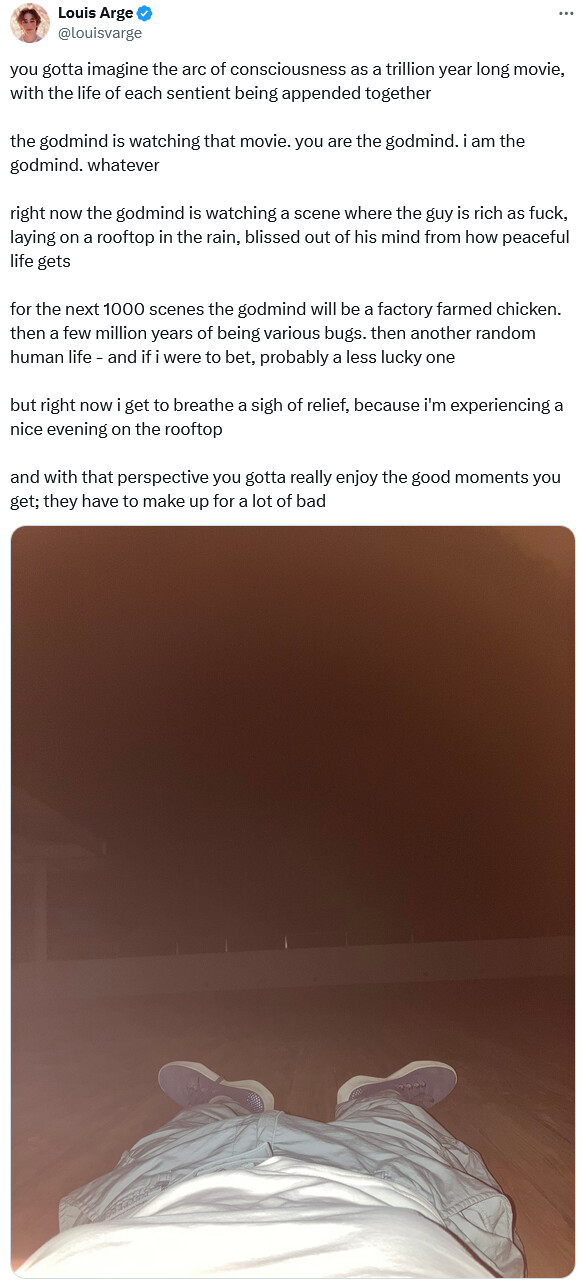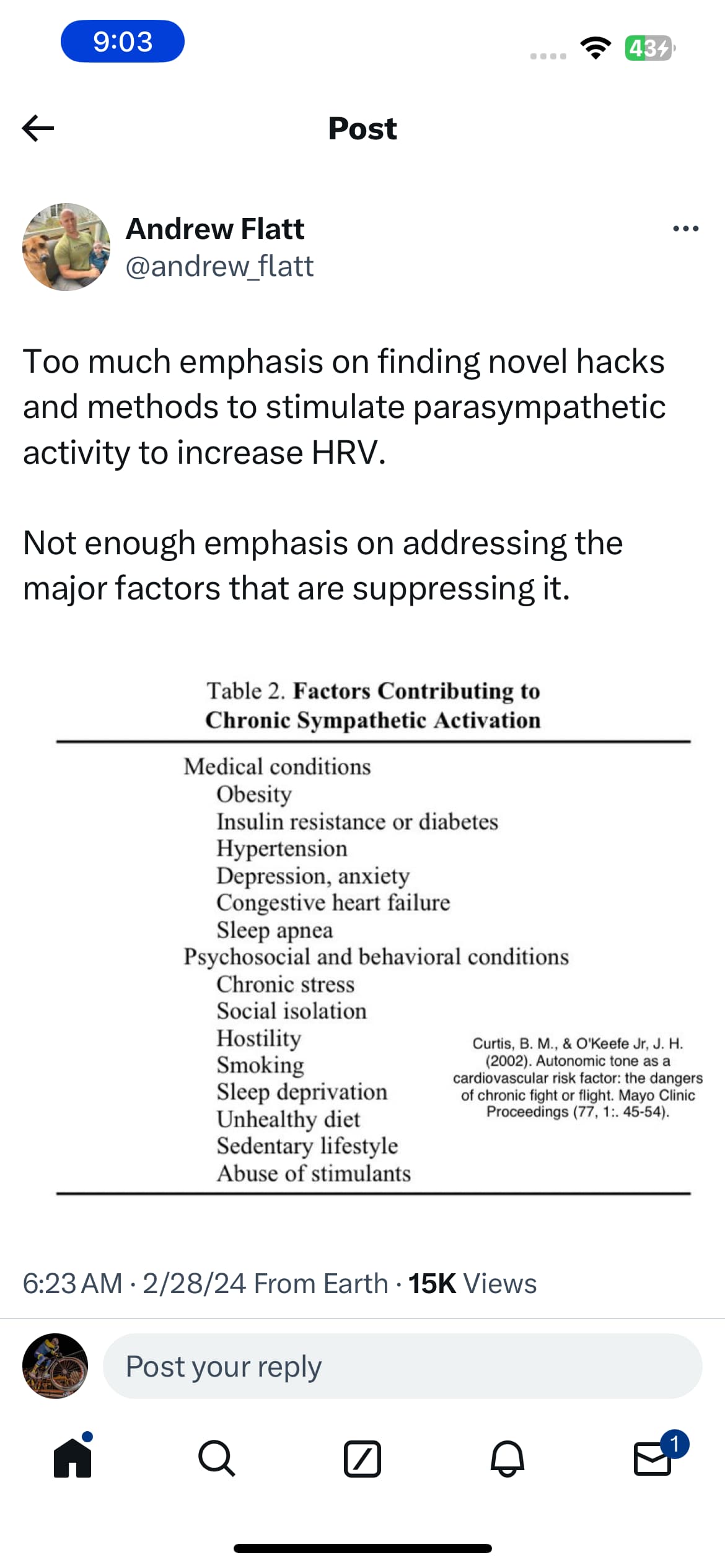Thank you for recommendation, @Christoph . I tried that app, and this is really good. Theory/practice/theory practice cycle is really excellent.
I’m interested in this for sleep. Do you use a sleep monitor? Have you noticed any difference in your sleep from using the Brainwave App?
The lesson here for me is to do the work. I need to remake myself into a person who naturally has higher HRV. I’m working on it.
I’ve had my Polar H10 for about 10 days and wear it at night for a sleep monitor. I use the EliteHRV app to do the Morning Readiness test. My score on that seems to bounce all over the place as well as the HRV rate itself. For HRV it says baseline 57, yesterday 88 and today 73. My sleep score (Android as Sleep app) have been consistently very good, not much variation. I’m still trying to get it all figured out.
I don’t have any of the factors on your Table 2 above.
Sounds like you are good on this pillar of health. Nice work.
Basically, all the measuring is just to get a baseline. I think that my health is pretty good (at least it feels that way) but who am I comparing myself to? The American public (big deal) or the world at large (some good, some bad). When I do the Levine Phenotype Blood calculator and come up with a score that says 10 years younger, they must be using some population to come up with what they think the average measures for your chronological age would be (and then comparing your actual blood levels to that). What is that population and how healthy would you consider them to be? If my Phenotypic age is 10 years younger than the average 70 year old Japanese, I might feel pretty good.
In the end, I just want a comprehensive set or repeatable, scorable tests that will tell me if a healthy person starts taking rapamycin, will they become even more healthy?
Hi. Yes I am using apple watch - but I am not trusting so much to the analysis REM/Deep sleep. According to subjective perception, I am sleeping better after dedicated program, inducing low-delta waves. But it can be also conformational bias.
Thanks! I’ve been using The Polar H10 as a sleep monitor(Android as Sleep app) for a couple of weeks and my scores have been pretty good but I’m curious, so I think I’ll try it.
This will make you mindful.
Its difficult to remember how I was when I was 39 (25 years earlier), but I am pretty certain I feel a lot better now than when I was 40.
For my 40th birthday I climbed 5 Colorado 14ers over 2 days including an unroped free solo of Crestone Needle’s 4th class finish. I don’t feel that good any more.
See here for part of the answer from Levine:
It seems like a lot of people here are coming out 10 years younger on Levine.
I’m afraid for the health of those that are coming out 10 years older that balance us out!
Thanks @Neo , it does seem like the updated Levine calculator is more realistic, although still can’t feel too great when comparing your health to the US or UK average (I went from 10 to 8 years younger).
My HRV and sleep scores have been good but strangely my HRV went way down for a couple of days after getting my DexaScan - must have been the X-rays? Also felt weird the next day.
![]() I did not think DEXA would have such an effect
I did not think DEXA would have such an effect
Could it have been something else - tense about the process or results or something? Or something totally unrelated?
Of course I can’t be sure, but with nothing else unusual, I felt distinctly mentally and physically off, just for the next day and when I later looked at my HRV it showed a big drop during that same time and then recovered. (who knows what it was?)
“It’s important to stand still sometimes. Think of it as a little rest in the long journey of your life. This is your harbor. And your boat is just dropping anchor here for a little while. And after you’re well rested, you can set sail again.”
— Satoshi Yagisawa, Days at the Morisaki Bookshop
I’ve been meaning to get into meditation for a while but I could never justify it until something Aubrey de Grey said made me think meditation is one of the top longevity practices we can implement right now:
"There’s one thing that almost all centenarians have in common which is, nothing bothers them.
It’s not necessarily that they’ve had particularly stress free lives. The thing is when they encounter a stressful situation they cope with it really well and their (stress) hormone levels don’t get really elevated."

https://x.com/louisvarge/status/1955444556255678539#m
Do we want what this guy is having? His blog Suffering 90% less, my meditation journey so far
Something to think about.
You are one of the luckiest people who have ever lived.
